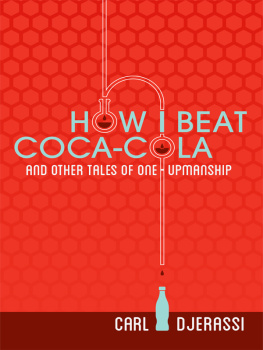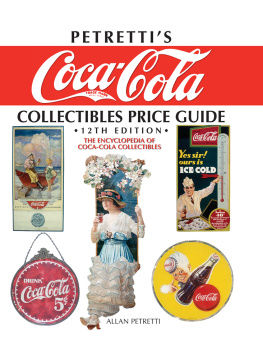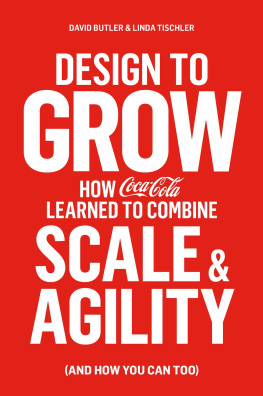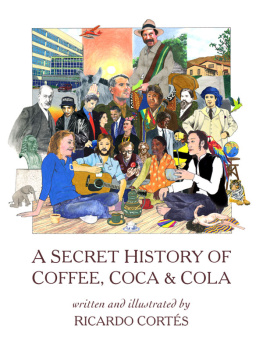Books by the Same Author
Fiction
Cantors Dilemma
The Bourbaki Gambit
Marx, Deceased
Menachems Seed
NO
Poetry
The Clock Runs Backward
A Diary of Pique
Drama
An Immaculate Misconception: Sex in an Age of Mechanical Reproduction Oxygen (with Roald Hoffmann)
Calculus
Ego: Three on a Couch
Phallacy
Sex in an Age of Technological Reproduction: ICSI and TABOOS
Foreplay: Hannah Arendt, the Two Adornos, and Walter Benjamin Insufficiency
NO (a pedagogic wordplay, with Pierre Laszlo)
Nonfiction
The Politics of Contraception
Steroids Made It Possible (scientific autobiography)
The Pill, Pygmy Chimps, and Degas Horse: The Autobiography of Carl Djerassi
From the Lab into the World: A Pill for People, Pets, and Bugs
This Mans Pill: Reflections on the 50th Birthday of the Pill (memoir)
Four Jews on ParnassusA Conversation: Benjamin, Adorno, Scholem, Schonberg
Chemistry in Theatre: Insufficiency, Phallacy or Both
Scientific Monographs
Optical Rotatory Dispersion: Applications to Organic Chemistry
Steroid Reactions: An Outline for Organic Chemists (editor)
Interpretation of Mass Spectra of Organic Compounds
(with H. Budzikiewicz and D. H. Williams)
Structure Elucidation of Natural Products by Mass Spectrometry
(2 volumes with H. Budzikiewicz and D. H. Williams)
Mass Spectrometry of Organic Compounds
(with H. Budzikiewicz and D. H. Williams)
How I Beat Coca-Cola
and
Other Tales of One-Upmanship
Carl Djerassi
Terrace Books
A trade imprint of the University of Wisconsin Press
Terrace Books, a trade imprint of the University of Wisconsin Press, takes its name from the Memorial Union Terrace, located at the University of Wisconsin-Madison. Since its inception in 1907, the Wisconsin Union has provided a venue for students, faculty, staff, and alumni to debate art, music, politics, and the issues of the day. It is a place where theater, music, drama, literature, dance, outdoor activities, and major speakers are made available to the campus and the community. To learn more about the Union, visit www.union.wisc.edu.
Terrace Books
A trade imprint of the University of Wisconsin Press
1930 Monroe Street, 3rd Floor
Madison, Wisconsin 53711-2059
uwpress.wisc.edu
3 Henrietta Street
London WC2E 8LU, England
eurospanbookstore.com
Copyright 2013 by Carl Djerassi
All rights reserved. No part of this publication may be reproduced, stored in a retrieval system, or transmitted, in any format or by any means, digital, electronic, mechanical, photocopying, recording, or otherwise, or conveyed via the Internet or a website without written permission of the University of Wisconsin Press, except in the case of brief quotations embedded in critical articles and reviews.
Printed in the United States of America
Library of Congress Cataloging-in-Publication Data Djerassi, Carl.
[Short stories. Selections]
How I beat Coca-Cola and other tales of one-upmanship / Carl Djerassi.
p. cm.
ISBN 978-0-299-29504-2 (pbk.: alk. paper)
ISBN 978-0-299-29503-5 (e-book)
I. Title.
PS3554.J47H69 2013
81354dc23
2013010471
This is a work of fiction. Any references to historical events, to real people living or dead, to real locales are intended only to give the fiction a setting in historical reality. Other names, characters, places, and incidents are either the product of the authors imagination or are used fictitiously, and their resemblance, if any, to real-life counterparts is entirely coincidental.
Each person completely touches us
With what he is and as he is,
In the stale grandeur of annihilation.
Wallace Stevens, Lebensweisheitspielerei
Contents
Preface
Why burden a collection of seemingly disparate short stories with a preface? Everyone knows that short stories are often finger exercises in preparation for a full concert. The first piece of fiction I ever wrote, the short story Castors Dilemma, did indeed represent such a finger exercise as a prelude to my first science-in-fiction novel, Cantors Dilemma. But my motivation for writing twelve variations around the common theme of one-upmanship does warrant a brief explanation.
The scientist behind my literary persona drives me all too frequently toward drawing an accurate picture of the contemporary science scene through the medium of realistic fictionat times so realistic as to border on literary journalism or on autobiography. But fiction authors are frequently autobiographers wearing a mask; I admit openly and indeed proudly that this statement applies to me. Why proudly? Because scientific researchers, notably those on the harder edges of chemistry and physics, are members of a tribal culture whose behavioral idiosyncrasies are not only unfamiliar to the outside world but frequently are not even recognized by members of the tribe. Knowledge of how to behave as a scientistindeed what it means to be a scientistis generally not taught in courses or books, but is acquired through a long osmotic process during the traditional mentor-disciple relationship. Gradually we accept the white laboratory coat as our cultural uniform.
Having conducted chemical research for nearly half a century, I certainly qualify as a member of the species Homo scientificus. Whether that also qualifies me to write effectively about the cultural practices of our tribe is a judgment that only the reader can render, although I shall make the case that it takes an insider to illuminate some of our more esoteric cultural practices covering the range from exceptionally generous collegiality all the way to brutally competitive Nobel lust, with my story Castors Dilemma illustrating that point. The overwhelming majority of working scientists spend little time on introspection and self-analysis. We are trained to analyze the world around us in exquisite detail and often with amazing insight, but very seldom do we apply these skills to an examination of our tribal behavior. I was not very different in that respect until my early sixties when I decided upon a form of auto-psychoanalysis through writing in the genre of science-in-fiction that allowed me a freedom of expression that shame, embarrassment, or even fear might have prevented me to use in the form of conventional nonfiction.
One-upmanshiptrumping competitors and colleagues alikeis endemic among research scientists. Winning an argument is crucialas is the accompanying admiration and envy it engenders. But even brief reflection will show that it is in fact a human foible that can be found wherever one searches for it. And since I have practiced one-upmanship for most of my adult lifeoften to my detrimentI thought that the most painless way of confessing that character fault of minestill in full bloom on my ninetieth birthdayis in the guise of fiction and in areas that have always appealed to me: food (Noblesse Oblige), sex (Whats Tatiana Troyanos Doing in Spartacuss Tent?), art (The Futurist), opera (The Glyndebourne Heist), human companionship (Maskenfreiheit), word play (The Toyota Cantos), and, of course, science (How I Beat Coca-Cola and The Dacriologist). Even the choice of some of the titles (e.g., The Psomophile) is a manifestation of one-upmanship, although the ultimate confirmation of its success will only arrive when the Oxford English Dictionary or Websters enters this invented word of mine in its next edition. Much of what I tell in these twelve short stories is autobiographical, though very little of it is biographical: it didnt happen to me as told, but it could have. To that extent, it is much more honest than conventional autobiography, which itself is a form of automythological fiction in which I have also indulged in the past.









